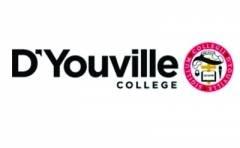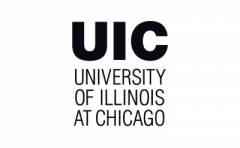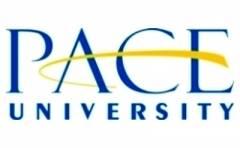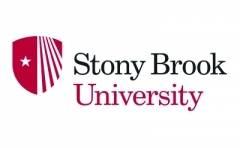Best Occupational Therapy/Therapist colleges in the U.S. 2024
Occupational therapists help patients of all ages overcome physical, mental, and emotional challenges that prevent them from living normal, everyday lives. They are compassionate, patient, and have excellent communication and listening skills. Occupational therapists evaluate a client?s specific problem area, provide a tailored plan of action, and follow up with the patient to see if goals are being met or if another plan needs to be created. Forty-eight percent of OTs worked in offices of physical, occupational and speech therapists, and with audiologists or in hospitals in 2010.
Students interested in becoming an occupational therapist should be prepared for a curriculum heavy in math and science. Students will learn how to assess and record patients? activities and progress, demonstrate certain exercises and equipment, and help patients and their families better understand their disabilities. In order to enter the profession, students must have a graduate degree, and they must be licensed by their state before they can practice. Certification is also available, although not mandatory. However if you?re interested, there are four specialization areas that the American Occupational Therapy Association (AOTA) offers certifications for: pediatrics, geriatrics, mental health, and physical rehabilitation. OTs should consider joining AOTA because membership includes subscriptions, quality continuing education, professional and career resources, and discounts for its more than 40,000 members.
Click Here to See the Best Colleges in the USBest Occupational Therapy/Therapist colleges in the U.S. for 2024

Chartered in 1831, New York University is a relatively small but prestigious institution with an impressive roster of accomplished alumni. Through its esteemed Steinhardt School, NYU offers an exciting array of OT options:
- Professional MS in Occupational Therapy
- Two-Tiered MS/Doctor of Occupational Therapy
- Full-time, 30-credit Post-Professional “one-year master’s” to advance skills and knowledge
- The rigorous Doctor of Occupational Therapy for Practicing Occupational Therapists
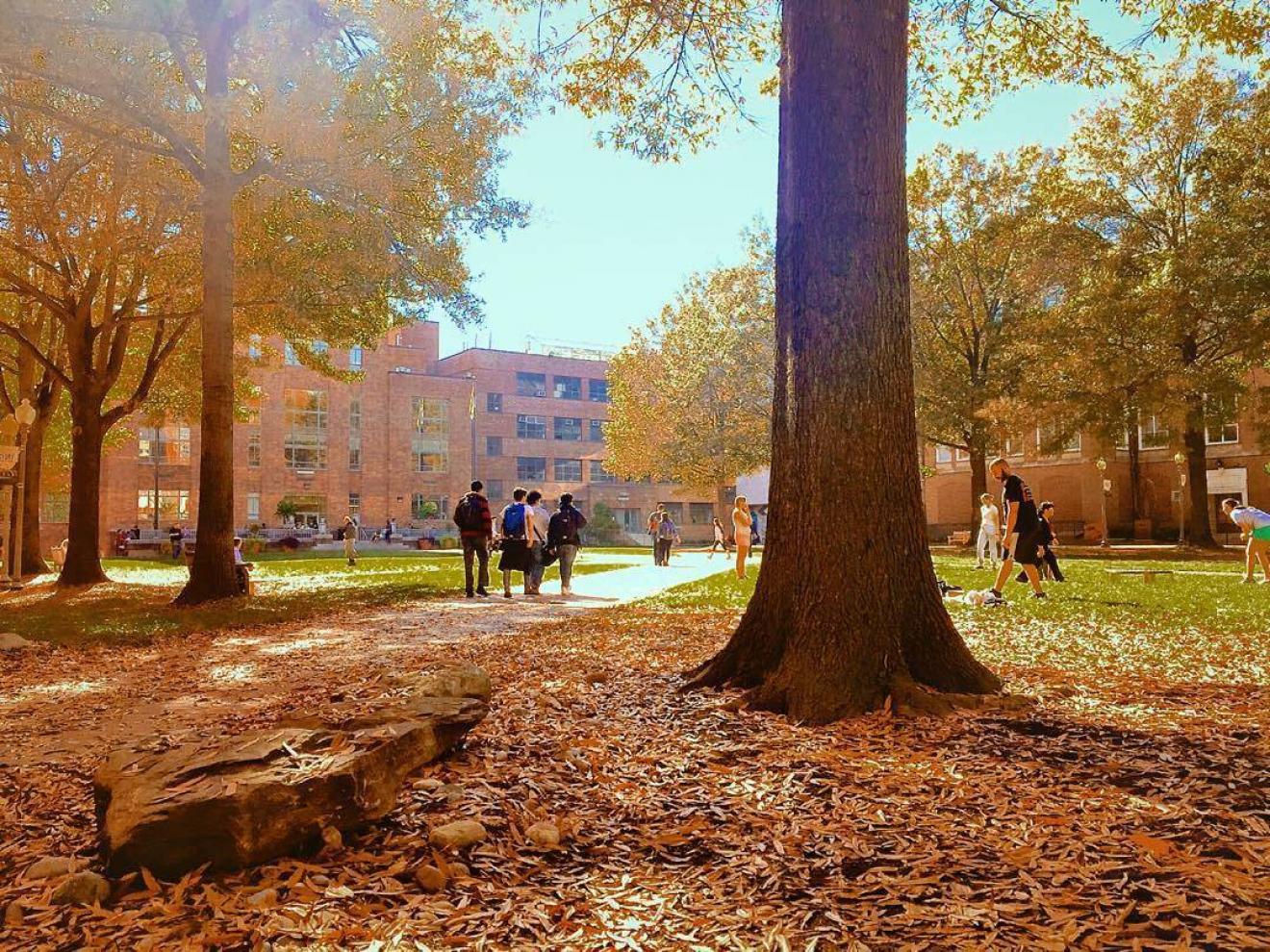
Washington D.C.’s largest higher education institution, George Washington University features a wide array of majors, a vibrant Greek life, and hundreds of student organizations. Through its School of Medicine and Health Sciences, GWU has two doctoral OT programs
- The Entry-Level OTD
- Post-Professional OTD — “designed to meet the professional needs of aspiring occupational therapists and licensed occupational therapists.”
There are also online Health Science degrees that can pave the way for OT graduate studies.


San Diego State University offers 1 Occupational Therapy/Therapist degree programs. It's a very large, public, four-year university in a large city. In 2022, 5 Occupational Therapy/Therapist students graduated with students earning 5 Certificates.

Chartered in 1789, the University of North Carolina at Chapel Hill is considered a Public Ivy because of its commitment to academic excellence. The sprawling 729-acre campus hosts 550+ student organizations and features numerous environmentally-friendly facilities.
UNC’s Department of Allied Health Sciences has its own Division of Occupational Science and Occupational Therapy, with a master’s option “designed for people with an undergraduate degree in a field other than occupational therapy” and an in-person PhD program “for individuals who wish to pursue academic careers that include research.” UNC recently announced it is ending its online programs.
A private Catholic university in South Orange, New Jersey, Seton Hall has been a pillar of academic excellence since 1856. The school features “the first entry-level master’s program of its kind in New Jersey” Master of Science in Occupational Therapy, as well as an accelerated dual degree B.A. in Social and Behavioral Sciences + M.S.O.T. which can be completed in six years. In the latter program, the senior undergrad year serves as the first year of study for the master’s program.
D'Youville University offers 2 Occupational Therapy/Therapist degree programs. It's a small, private not-for-profit, four-year university in a large city. In 2022, 97 Occupational Therapy/Therapist students graduated with students earning 68 Master's degrees, and 29 Bachelor's degrees.
Established in 1859, University of Illinois at Chicago is one of the largest schools in the area, with a diverse student body of ~35,000. UIC previously offered an MS in Occupational Therapy, but has transitioned to the on-campus Entry-level Occupational Therapy Doctorate.
There’s also a Post-professional Doctor of Occupational Therapy for “practice-scholars who specialize in advanced practice, education, applied research, leadership and management in occupational therapy.” For interdisciplinary students, UIC features joint degree PhD programs in Disability Studies and in Rehabilitation Sciences.
Pace University offers 1 Occupational Therapy/Therapist degree programs. It's a large, private not-for-profit, four-year university in a large city. In 2022, 27 Occupational Therapy/Therapist students graduated with students earning 27 Master's degrees.
Based in Long Island, Stony Brook stretches over 1,454 acres, making it New York’s geographically-largest public university. Its School of Health Professions features a 3-year Master of Science in Occupational Therapy program where students can conveniently gain clinical experience at the Stony Brook medical center. The program admits just 60 candidates a year; 30 for the Stony Brook cohort and 30 at the Southampton campus. Students “receive faculty mentorship throughout their academic experience and oftentimes continue that mentorship post-graduation.” The program has outstanding student outcomes including a 98% graduation rate for 2019-2020.
McKendree University offers 1 Occupational Therapy/Therapist degree programs. It's a small, private not-for-profit, four-year university in a large suburb.
Find local colleges with Occupational Therapy/Therapist majors in the U.S.
What is Occupational Therapy/Therapist?
The educational path to becoming a licensed occupational therapist starts with suitable undergraduate coursework to lay the proper foundation. This generally involves completing a bachelor’s with a major in health sciences, sometimes with a concentration in pre-occupational therapy.
There are also community college pre-occupational therapy associate programs that prepare students for transfer to four-year institutions. In some cases, after obtaining an associate degree, students may apply for occupational therapy aide or assistant jobs to gain hands-on experience before pressing on with their bachelor’s or Master of Occupational Therapy.
Typical coursework covers topics such as biology, physiology, and health education. Sample graduate courses may include:
-
Skills and Techniques for Client Care Management
-
Occupational Engagement and Theories of Practice
-
Clinical Neuroscience
-
Human Movement for Occupational Performance
-
Wellness and Health Promotion
-
Clinical Applications of OT (in various areas of specialization, such as Pediatrics/Adolescence, Adulthood, or Geriatrics)
-
Orthotics, Prosthetics and Modalities
An undergraduate Occupational Therapy-related degree should qualify graduates to take the NBCOT’s Certified Occupational Therapy Assistant (COTA) exam. A Master of Occupational Therapy degree allows graduates to take the Occupational Therapist Registered (OTR) exam. Degrees must be from programs accredited by the Accreditation Council for Occupational Therapy Education.
Exam candidates must also pass a brief character review. Once a candidate passes their NBCOT exam and meets any state-specific requirements, they can apply for licensure!
Occupational Therapy/Therapist Degree Overview
We often associate the word “occupation” with jobs, but occupational therapy refers to restoring patients’ abilities to perform activities which occupy their daily life. Occupational Therapists must hold at least a master’s degree in the field along with state licensure.
Many start with a Bachelor’s in Healthcare or a related major before starting their Master of Occupational Therapy (MOT).
After ~24 weeks of supervised fieldwork and graduation from an accredited MOT program, candidates must pass an exam from the National Board for Certification of Occupational Therapy (NBCOT) prior to applying for a license to work. They may advance their knowledge and skills through board/specialty certifications from the American Occupational Therapy Association (AOTA). Some go on to complete a Doctor of Occupational Therapy (OTD) or PhD program.
Associate Degree in Occupational Therapy/Therapist
If you plan to complete a bachelor’s, then an associate degree isn’t needed. However, this degree can get you qualified to start working as an aide or assistant, if that’s your goal. These entry-level positions are useful for gaining practical experience while earning an income.
An associate degree requires ~60 semester credit hours and may take two years to complete, if going full-time. Part-time attendance may take twice as long. As noted by Linn-Benton Community College, “Successful graduates will be eligible and prepared to sit for the national certification examination and to be employed as entry-level occupational therapy assistants in a variety of practice settings.”
Bachelor's Degree in Occupational Therapy/Therapist
There are different OT-related bachelor’s degree options:
-
Pre-professional Bachelor of Pre-Occupational Therapy
-
Bachelor of Health Sciences
-
Bachelor of Exercise and Sports Science
Some students even major in biology or psychology, though they may have to complete a few prerequisite courses before applying for a master’s (if that is their end goal).
Most bachelor’s degrees typically require ~120 semester credit hours. Full-time students usually complete these degrees in four years though it can take longer depending on circumstances. Part-time students might take seven years or so, but it is important to note if the program has a maximum length of time allowed to finish.
Note, a bachelor’s will not qualify you to be an occupational therapist; that requires a master’s. However, this degree, along with passing the NBCOT’s Certified Occupational Therapy Assistant exam and obtaining state licensure, may qualify you for better occupational therapist assistant jobs.
Master's Degree in Occupational Therapy/Therapist
The MOT is commonly the last step on the path to becoming an occupational therapist. This degree may take two or three years to finish, if going to school full-time.
Depending on the school and program, an MOT curriculum will require roughly 21 courses, give or take. These will include fieldwork so students can acquire hands-on practice. Some programs may desire candidates to have already completed a certain number of supervised work or volunteer hours in an OT setting.
Many schools offer a convenient dual degree path that streamlines the process to allow students to work on their bachelor’s and master’s in an expedited manner, saving time and money!
Doctoral Degree in Occupational Therapy/Therapist
Although it is possible to work as an OT with a master’s, many people continue their studies to obtain a doctorate.
That said, there has recently been debate on whether or not a doctoral degree should be the minimum degree for entry. In 2014, the AOTA stated that “the profession should take action to transition toward a doctoral-level single point of entry for occupational therapists, with a target date of 2025.” They later reversed that position. However, it is not impossible that occupational therapy jobs may eventually go the way of physical therapy (which no longer allows for a master’s-level entry into the field).
A Doctor of Occupational Therapy degree may not be required but it can certainly pave the way for landing jobs with more responsibility and higher salary potential. Per the MGH Institute of Health Professions, “Preparation at the doctoral entry-level goes well beyond that of the entry-level master’s degree. OTD students complete additional preparation in leadership, policy analysis, advocacy, theory, and research, as well as an additional mentored advanced doctoral experience.”
OTD programs can take almost three years to complete, or longer if seeking advanced specialization certifications. Sample coursework may include:
- Abnormal Psychology
- Anatomy & Physiology
- Bioethics
- General Biology
- Medical Terminology
- Sociocultural Anthropology
- Sociology
- Statistics
It’s important to remember that all programs must be accredited by the Accreditation Council for Occupational Therapy Education (ACOTE).
Certification and Licensure in Occupational Therapy/Therapist
Per BLS, all states require occupational therapists and occupational therapist assistants to obtain a license to practice. Apart from educational requirements, the main criteria for licensure is achieving a passing score on the NBCOT’s Occupational Therapist Registered (OTR) or Certified Occupational Therapy Assistant (COTA) exam, as applicable. Passing this test leads to certification.
To apply to take the test, candidates send in college transcripts and pay the exam fee, after which NBCOT will send an Authorization to Test letter which allows candidates to schedule their test at a local Prometric test center. The exam takes about 4 hours, not counting time for administrative requirements.
Within six weeks after the exam, NBCOT mails out scores along with a certificate for those who pass. As noted on their website, “Passing the NBCOT certification exam is different from applying for state licensure. Sending a score report to a state regulatory board does not automatically initiate the process to obtain a license or permit to work in that state.”
Test takers must get in touch with their respective state regulatory board to learn about the next steps for obtaining a license to work. Licensure requirements commonly include the following:
- Proof of suitable academic degree completion (to include proper accreditation of the degree)
- Sufficient completed fieldwork
- Proof of a passing NBCOT exam score
In addition, there should be no evidence of unprofessional conduct, including felony convictions that might have a bearing on the candidate’s ability to be entrusted to serve the public in an OT/OTA role.
Additional Certifications
Many occupational therapists choose to specialize in areas that require additional board certification. AOTA offers three areas of advanced certification:
- Gerontology (working with older adults)
- Pediatrics (working with children)
- Physical Rehabilitation
The minimum eligibility criteria to apply for any of these are as follows:
- “Certified or licensed by and in good standing with an AOTA-recognized credentialing or regulatory body;
- “A minimum of three years as an occupational therapist;
- “A minimum of 3,000 hours of experience in the certification area within the last 5 years;
- “A minimum of 500 hours of experience delivering occupational therapy services to clients in the certification area within the last 5 years.”
Other than the advanced certs offered by AOTA, there are other organizations that also grant certifications in these areas:
- Aquatic Therapy
- Assistive Technology
- Autism
- Brain Injuries
- Diabetes
- Driving and Community Mobility
- Environmental Modification
- Feeding, Eating and Swallowing
- Hand Therapy
- Hippotherapy
- …and many more!
What Can I Do with a Degree in Occupational Therapy/Therapist?
There are several exciting career options for students who complete a degree in occupational therapy. Below are a few of the obvious ones, as well as a few creative options you might not have considered, with Occupational Therapy salary estimates:
Occupational Therapist Aide
In this role, workers may escort patients between and around rooms, clean and tidy areas, assemble and prep equipment, and perform various administrative tasks including scheduling, fielding calls, and managing supplies. Aide jobs may not require a degree, but a related associate can help you get hired. CPR and Basic Life Support certifications are also commonly needed.
- Median annual salary: $31,047
- Top 10% of earners salary: $38,291+
Occupational Therapist Assistant
Assistants work closely with OTs and patients to ensure individualized treatment plans are demonstrated and maintained. They help patients understand ways to redevelop lost skills or learn new ones using special equipment. OTAs also track and report patient progress. These positions require at least an accredited associate degree and a state license (after first passing the NBCOT exam). CPR and Basic Life Support certifications are needed.
- Median annual salary: $62,218, plus benefits
- Top 10% of earners salary: $73,931+
Occupational Therapist
OTs perform a range of duties, such as reviewing patient histories, conducting evaluations, creating customized treatment plans, helping patients learn or relearn skills, demonstrating proper exercise techniques, making equipment recommendations, and assessing progress. This role requires a Doctor of Occupational Therapy, along with certification and state licensure.
- Median annual salary: $92,829, plus benefits valued at $30K+ (such as healthcare, pension, paid time off, 401K, etc.)
- Top 10% of earners salary: $108,672+
In addition to the usual career options, a few creative ideas are to work as an independent contractor or a consultant in areas such as:
- Assistive Technology
- Ergonomics
- Home or Workplace Modifications
- Driver Rehabilitation
- Product Development
- Educational Institutions
Some OTs capitalize on their knowledge, monetizing what they’ve learned to earn good incomes through websites, videos, writing, app design, or by teaching at colleges.
Earning an Online Occupational Therapy/Therapist Degree
Many courses related to Occupational Therapy degrees can be completed online, but due to the nature of Occupational Therapy work, hands-on practice is necessary.
Per AOTA, “There are no accredited entry-level occupational therapy or occupational therapy assistant educational programs that are offered in the online format. Some educational programs may offer some courses or parts of courses online, but there are no educational programs offered entirely online.” That is why students who attend online programs will see that some OT classes must often be done in-person or that there is supervised clinical work needed.
Thus, occupational therapy programs are either hybrid (partially online, with an in-person component) or entirely on-campus/in-person. Of course, many undergraduate students don’t major in OT during their associate or bachelor’s degree, so everything depends on the major and the program itself. Undergrads who don’t have sufficient clinical experience or hands-on coursework may have to complete those prior to being accepted into an MOT or ODT program.
For those who need the flexibility and convenience of online programs, it’s important to remember that there are still plenty of hybrid programs out there that can pave the way toward an OT-related degree. The key is to ensure your program is properly accredited (if it is a program specifically in Occupational Therapy, it must be accredited by the Accreditation Council for Occupational Therapy Education.
Having the ability to take at least some courses online can make a big difference for students with work and family obligations. Just pay close attention to how much practical experience you’ll need for the job you want to qualify for. Per BLS, “Both master’s and doctoral programs require at least 24 weeks of supervised fieldwork, in which prospective occupational therapists gain clinical work experience. In addition, doctoral programs require a 16-week capstone experience.”
If a program requires observation or volunteer experience, AOTA suggests contacting “local facilities that employ occupational therapists and/or occupational therapy assistants (e.g., hospitals, nursing homes, rehabilitation centers, or school systems).”
Occupational Therapy/Therapist FAQ
List of all Occupational Therapy/Therapist colleges in the U.S.
| School | Average Tuition | Student Teacher Ratio | Enrolled Students | |
|---|---|---|---|---|

|
New York University New York, NY | 20 : 1 | 59,144 | |

|
George Washington University Washington, DC | 22 : 1 | 25,939 | |

|
San Diego State University San Diego, CA | 37 : 1 | 37,402 | |

|
University of North Carolina at Chapel Hill Chapel Hill, NC | 19 : 1 | 31,705 | |

|
Seton Hall University South Orange, NJ | 21 : 1 | 9,623 | |






